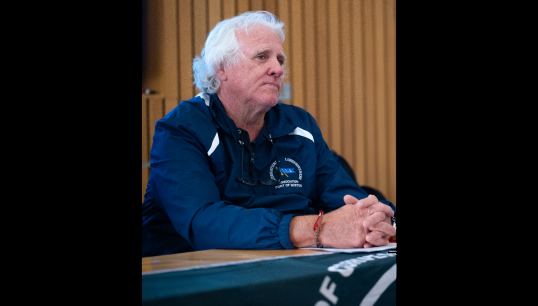ITF adds two more countries to FOC list, as seafarer abandonment hits new highs
17 May 2024

The International Transport Workers' Federation has added the ship registries of two more countries, Gabon and Eswatini, to its list of Flags of convenience (FOCs).
An FOC is a ship registry which charges fees to shipowners but without undertaking the regulatory, crew safety and welfare responsibilities of a genuine flag state. Many countries that operate an FOC registry are in severe economic distress and use their registry to gain income, while lacking the power or funding to meet their responsibilities. This allows shipowners to adopt poor standards, hide their identity, and avoid international sanctions.
Including the two new additions, 43 countries have been declared FOCs by the ITF's Fair Practices Committee.
Avoiding accountability
Speaking at a press conference held at ITF House, London, on 16 May 2024, ITF president Paddy Crumlin explained how the FOC system allows for labour abuses.
'The whole basis for registering your ships with an FOC is to avoid accountability on safety and tax, to circumvent human rights,' he said. 'There's no real regulation, because the FOCs don't have the capacity and aren't geared for it. There's abandonment, virtual imprisonment, high death rates.
'ESG [environmental, social and governance standards] hasn't reached into the shipping industry. The accountabilities companies in other industries are meeting do not exist.'
Mr Crumlin pointed out that several major players in the shipping industry are complicit, because even when their own vessels are registered with quality flags, they often charter vessels that are registered with FOCs without applying their own ESG requirements.
No genuine link
The first of the two new FOCs is Eswatini (formerly known as Swaziland). The landlocked country, 40 miles from the ocean, is one of the smallest countries in the world. It is not a member of the United Nations' International Maritime Organization and has not ratified the SOLAS maritime safety convention.
It currently has seven vessels on its registry, all of which would normally be subject to international sanctions (there are possibly 14 vessels registered, but the Eswatini registry's website is unclear about this and this may be counting the same ships twice).
Gabon has about 230 vessels, of which only six have a genuine link to Gabon. It is the fastest growing registry in the world, especially after international sanctions went into effect following the Russian invasion of Ukraine.
Abandonment
At the press conference, the ITF also warned that seafarer abandonment – which hit a new high in 2023 – is likely to be even worse in 2024. Cases were formerly concentrated in hotspots such as the Persian Gulf but now occur worldwide, even in North America and Europe.
The FOC system makes abandonment worse, because it is difficult to trace the ownership of the vessel when it is registered with an FOC to bring pressure for the seafarers to be repatriated and to restore their unpaid wages. This was particularly problematic when seafarers struggled to get home due to Covid-19 travel restrictions.
'We report almost 100% of the abandonment cases reported to the International Labour Organization,' said ITF inspectorate coordinator Steve Trowsdale.
'There have been 116 cases already this year, 86 of them FOC flagged or unknown, and 1,300 seaf have requested help. ITF reported all of them. Of the top 10 flags of these vessels, seven were FOCs.'
Mr Trowsdale went on to discuss shocking recent cases of abandonment – including one which was recently resolved in which a seafarer was trapped onboard his vessel for 12 years, without pay for nine. In another case, involving a ship owned by UAE-based Middle East Marine, Indian seafarers were abandoned in the Persian/Arabian Gulf for months with no pay and their generator only being run one hour a day – having to sleep on deck due to lack of air conditioning. The ship's master, still unpaid, is actually an able seaman 'promoted' shortly after joining the ship because he had some navigation experience.
Read more about campaigning against the FOC system and listen to an interview with the ITF's Jaqueline Smith on the subject.
Tags
